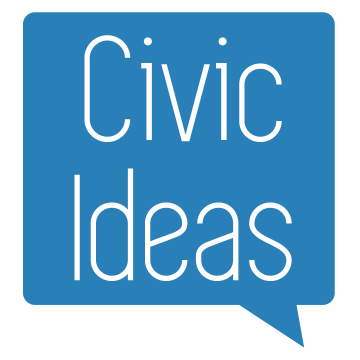By Barbara Borst —
Measuring the exact impact of money on voters has proved hard to do. More often the focus is on how money alters the behavior of politicians or affects the political system as a whole. Scholars, activists and politicians disagree about what money really does in elections.
Two broad camps emerge: The first believes that campaign donations are an important form of free speech and, therefore, should not be curtailed. The second believes that money, especially in the form of large donations, corrupts the political system by buying “improper influence” for big donors, even if politicians do not use the money for personal gain (the traditional definition of corruption).
First published in November 2012 on tutawaza.com.
The free speech camp includes the Supreme Court. It decided in favor of Citizens United, which had sued the Federal Election Commission for blocking its ads during the 2008 elections, on the basis of the First Amendment guarantee of freedom of speech.
It also includes John Samples, director of the Center for Representative Government at the Cato Institute in Washington, and author of “The Fallacy of Campaign Finance Reform.”
Samples says critics of the Citizens United ruling wrongly equate campaign funds with corruption rather than with free speech.
“Everyone expects that the money, if you spend it on speech, you spend it to mobilize people, to get them to change their minds. You want that influence,” he said.
If self-interest alone drove big campaign spenders, he added, they could make their own lives easier by focusing on lobbying instead.
Bruce E. Cain, a political scientist at Stanford University, sees pluses and minuses to SuperPACs that arose to make use of the Court’s ruling: They funnel money toward competitive races, instead of secure incumbents, but they also enable wealthy individuals and groups to play a big role and to expect “some favors in terms of government contracts, tweaks in regulatory policy or tax breaks.”
“After several decades of research, we know the following,” Cain wrote in an e-mail. “Money is a necessity to run for most offices, but having more money is not a guarantee of victory.
“Challengers in particular need it to establish name idea and to set out their agendas. So the effect of having money is more important for them than for incumbents, who are generally already known,” said Cain, former head of the University of California’s program in Washington, D.C. “There is some threshold of spending that you need to compete, but spending more does not always lead to victory.”
For Lawrence Lessig, a professor at Harvard Law School, the constant pursuit and use of money in U.S. politics has “normalized” a distortion of the democratic system.
In his book “Republic, Lost: How Money Corrupts Congress – and a Plan to Stop It,” he writes that the current political system is corrupt in two ways: “bad governance, which means simply that our government doesn’t track the expressed will of the people,” and “lost trust: when democracy seems a charade, we lose faith in its process.”
Elisabeth MacNamara, president of the non-partisan League of Women Voters, says money corrupts the political system by making politicians listen to donors rather than to constituents.
“I don’t think there’s any question that those big-money special interests have more influence. It’s corrupting the process. It endangers our democracy,” MacNamara said. “The Court, if nothing else, was very naïve about how money influences politics.”
Fred Wertheimer, president of Democracy 21, a Washington-based nonprofit, said it is difficult to measure the impacts of money because the political system is sophisticated.
“I don’t believe in the need to quantify what’s going on to justify the need for reform,” he said. “We don’t need to go beyond the fact that this money has the potential for undue influence.
“When interest groups put billions of dollars into elections, one can assume there’s a reason. We can examine what’s done and not done” as a consequence, he added.
A former Democratic National Committee finance director, Lindsay Mark Lewis sees three major problems with money in politics: too much money, unregulated money and too much time spent raising money. Working the financial side of campaigns, he found that donors “want credit for what they do.”
“It’s not always about good government. Those are rare finds” among donors, he said. “Others want something out of it. It’s harder for them to get what they want when it’s part of a larger project like a party” rather than unlimited funds to a SuperPAC.
Lewis, who now heads the Progressive Policy Institute, calls the Citizens United decision “probably the worst decision ever made by the Supreme Court.” He says that unlimited money in politics increases the possibility that funds will be used for voter suppression in ways that are “sometimes subtle, sometimes over the top.”
Blair Bowie, democracy advocate at the consumer organization U.S. Public Interest Research Group, says that money in politics “undermines the principle of equality and democracy.”
“We’re missing the point of democracy,” she said. “We’re allowing people in society to directly translate wealth into political power.”
Categories: Americas, Governance, Justice, USA
